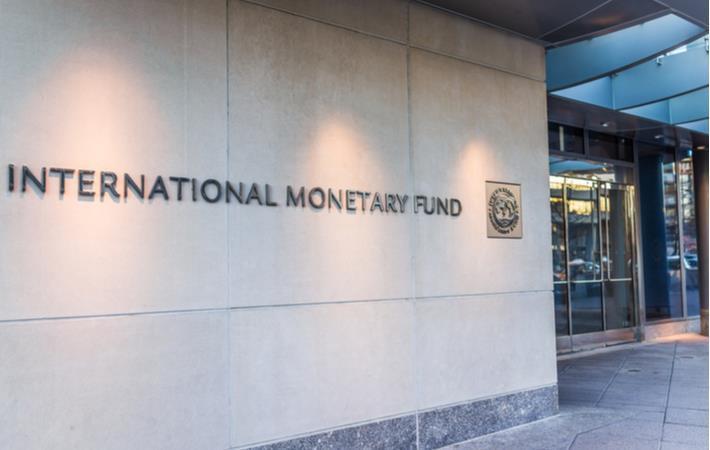Interviews
Pandemic causes trade decline, dips commodity prices: IMF
08 Aug '20
3 min read

Pic: Shutterstock
Current account surpluses and deficits narrowed modestly in 2019, and the economic outlook is highly uncertain for 2020, according to the latest external sector report by the International Monetary Fund (IMF), which said the COVID- 19 pandemic has caused a sharp decline in global trade, lowered commodity prices and tightened external financing conditions.
IMF’s multilateral approach suggests that about 40 per cent of overall current account surpluses and deficits were excessive in 2019, only slightly less than in 2018. Larger-than-warranted current account balances were mostly in the euro area (driven by Germany and the Netherlands) with lower-than warranted current account balances mainly existing among Canada, the United Kingdom, and the United States.
China’s assessed external position remained, as in 2018, broadly in line with fundamentals and desirable policies, due to offsetting policy gaps and structural distortions. Currency movements were generally modest, with exceptions including emerging market and developing economies with preexisting vulnerabilities.
At a global level, the latest IMF staff forecasts imply a modest narrowing in current account surpluses and deficits by some 0.3 per cent of world gross domestic product (GDP), although subject to high uncertainty.
The limited expected net impact reflects large fiscal expansions with offsetting expected increases in private saving and lower investment.
Still, for economies dependent on severely affected sectors, such as oil and tourism, or reliant on remittances, the impact of the crisis has been especially acute, with negative effects on external current account balances expected to exceed 2 per cent of GDP that will likely require significant economic adjustment, IMF said.
IMF analysis suggests that a further worsening in risk sentiment could—for economies with preexisting vulnerabilities, such as large current account deficits, a high share of foreign currency debt, and limited international reserves—further increase risks of an external crisis.
A second wave of the crisis, with a renewed tightening in global financial conditions, could narrow the scope for emerging market and developing economies to run current account deficits, further reduce the current account balances of commodity exporters, and deepen the decline in global trade.
In the near term, policy efforts should continue to focus on providing relief and promoting economic recovery.
Tariff and nontariff barriers to trade should be avoided, especially on medical equipment and supplies, and recent new restrictions on trade rolled back, IMF suggested. Over the medium term, economic and policy distortions that predated the crisis may persist or worsen, implying the need for reforms.
Countries with lingering export competitiveness challenges would also benefit from productivity-raising reforms. In economies where excess current account surpluses that existed before the COVID-19 crisis persist after the crisis, prioritising reforms that encourage investment and discourage excessive private saving are warranted.
IMF’s multilateral approach suggests that about 40 per cent of overall current account surpluses and deficits were excessive in 2019, only slightly less than in 2018. Larger-than-warranted current account balances were mostly in the euro area (driven by Germany and the Netherlands) with lower-than warranted current account balances mainly existing among Canada, the United Kingdom, and the United States.
China’s assessed external position remained, as in 2018, broadly in line with fundamentals and desirable policies, due to offsetting policy gaps and structural distortions. Currency movements were generally modest, with exceptions including emerging market and developing economies with preexisting vulnerabilities.
At a global level, the latest IMF staff forecasts imply a modest narrowing in current account surpluses and deficits by some 0.3 per cent of world gross domestic product (GDP), although subject to high uncertainty.
The limited expected net impact reflects large fiscal expansions with offsetting expected increases in private saving and lower investment.
Still, for economies dependent on severely affected sectors, such as oil and tourism, or reliant on remittances, the impact of the crisis has been especially acute, with negative effects on external current account balances expected to exceed 2 per cent of GDP that will likely require significant economic adjustment, IMF said.
IMF analysis suggests that a further worsening in risk sentiment could—for economies with preexisting vulnerabilities, such as large current account deficits, a high share of foreign currency debt, and limited international reserves—further increase risks of an external crisis.
A second wave of the crisis, with a renewed tightening in global financial conditions, could narrow the scope for emerging market and developing economies to run current account deficits, further reduce the current account balances of commodity exporters, and deepen the decline in global trade.
In the near term, policy efforts should continue to focus on providing relief and promoting economic recovery.
Tariff and nontariff barriers to trade should be avoided, especially on medical equipment and supplies, and recent new restrictions on trade rolled back, IMF suggested. Over the medium term, economic and policy distortions that predated the crisis may persist or worsen, implying the need for reforms.
Countries with lingering export competitiveness challenges would also benefit from productivity-raising reforms. In economies where excess current account surpluses that existed before the COVID-19 crisis persist after the crisis, prioritising reforms that encourage investment and discourage excessive private saving are warranted.
Fibre2Fashion News Desk (DS)
Popular News
Leave your Comments
Editor’s Pick
Yohan Lawrence
Joint Apparel Association Forum (JAAFSL)
Srihari Balakrishnan
Sri Kannapiran Mills Limited
Bijou Kurien
Retailers Association of India (RAI)
































-Ltd..jpg?tr=w-120,h-60,c-at_max,cm-pad_resize,bg-ffffff)





.jpg?tr=w-120,h-60,c-at_max,cm-pad_resize,bg-ffffff)
.jpg?tr=w-120,h-60,c-at_max,cm-pad_resize,bg-ffffff)






